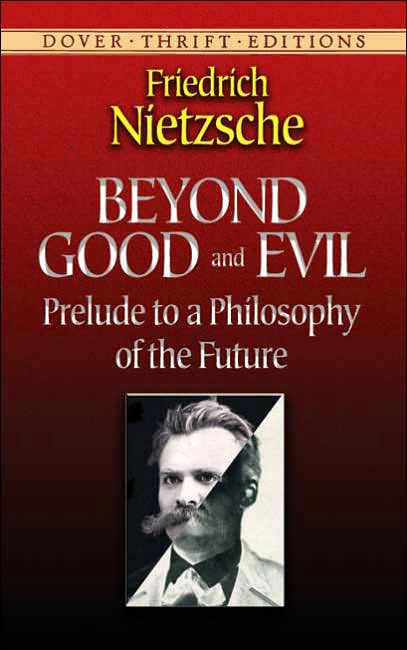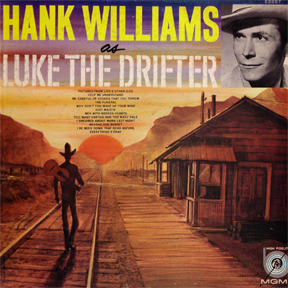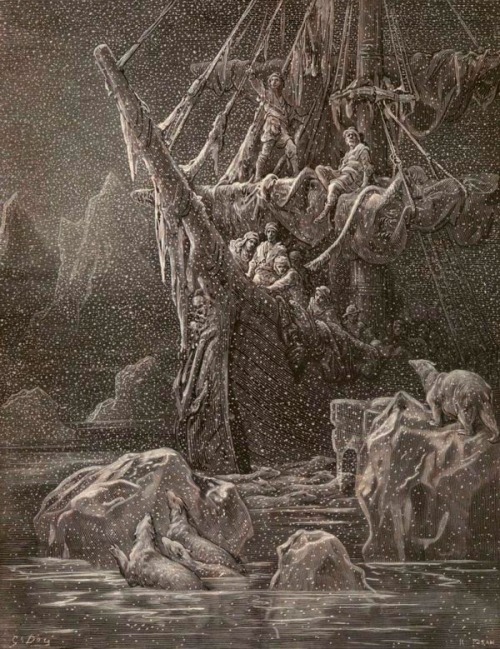THE LAST NIGHT OF THE EARTH POEMS
A book of poems by Charles Bukowski, many of the poems written in the last period of his life, some whilst under terminal illness. At times you wonder has he lost it, some of the fight and anger seem to have gone, but then he returns with good poems, ones that reflect his development with his age. For those who know Bukowski and like him, it’s worth your time. If you don’t know who he is, here’s a good film on him if you’re interested:
THE GAY SCIENCE – with a prelude in rhymes, and an appendix of songs
Another great book by Nietzsche. I can’t do him justice by review, why not pick up a copy in a bookshop if you’re interested, and read a bit. This is a lovely version, translated by Kaufmann who seems to be rated the best translator, his notes are very enjoyable. You also have the bonus of Nietsche’s poetry, before and after the main book; how original. You could read this book many times and still find it worthwhile to go back to the well again. Das ist ausgezeichnet Herr Nietzsche!
ECCE HOMO – How One Becomes What One Is
Walking around Turin, Nietzsche saw a horse being whipped by its owners. He ran over and draped his hands around the horse’s neck to protect it, before falling into irrecoverable madness. A few weeks earlier Nietzsche had finished his autobiography ‘Ecce Homo’. It’s one of five books produced in his final productive year. First, as stated below, Nietzsche is too good to summarise, I think at best you try and give a taste. Second, German readers get the greatest prose writer in their language. Thirdly an academic will have especial interest when a great writer produces an equally great autobiography, giving views on each of his works, and his artistic development.
As a casual reader, to use one of his metaphors, I’m picking up some of the fallen ripe fruit his winds have shaken from the tree. For example, he links a person’s philosophy to their physical state, and how decadent (anti-life) they are. He was a Professor of Philology for ten years, and describes scholars who read to ruin, who by their 30’s no longer have anything left of themselves. He fell terribly sick and realised he was wasting his life’s energies in “selflessness”, he had gone against his instincts, he was decadent. Instinctively he took himself in hand and knew how to make himself better, proving he was at heart also the very opposite of a decadent, a yes-sayer on life. He claims being both gave him a unique insight on decadence and life approval, and the ascent/descent between the two. He realised he physically couldn’t afford energies on retaliation or resentment, so he came to have a Russian style acceptance of his fate, pains and all, like a tragic Dionysian figure of ancient times, which he sees as the most positive type of man. He found the correct diet (light food with no alcohol), kept himself away from people who made his thought unclean, and from works that were beneath him when in a spiritually pregnant phase. He went to live in dry warm climates of the south (Northern Italy, Switzerland, etc.), where dry air and a faster metabolism, gave great strength, which spilled out into his work. He identifies Christianity, and the modern life, as anti-nature, teaching you to ignore your instincts, that they are the creations of weak decadent characters taking vengeance on life. He was strong enough to liberate himself from what in his nature didn’t belong to him, “a spirit that is free again takes possession of itself”. He said his nethermost self was buried and grown silent under pressure of listening to other selves. With illness he went away by himself and was quiet. It awakened slowly, shyly, dubiously, eventually it spoke again. To become what one is, you have to be hard, selfish. To find your true self you ask the question “What have you really loved till now?” It is not concealed in you, it’s high above you. Your real educators, those who formed you, will reveal to you what is the true primary meaning & fundamental substance of your being. He believes it is dangerous to realise your task too early, how an organising idea was in him secretly preparing him for his work, and unaware of this his talents then leapt forth from him perfectly formed, his own work coming to him as a revelation. Describing his Zarasthustra as the greatest work in the history of humanity, he prepares to carry out his work “a revaluation of all values” but collapses into insanity.
Of the books I’ve read, Nietzsche, Dostoevsky and Shakespeare are the three greatest writers I’ve met. You can pick up any of them at a budget price as they’re all out of copyright. So people, if you like this small taste……….
NICO: SONGS THEY NEVER PLAY ON THE RADIO
Jesus, what a depressing read, about a drug addict pop star really on the way down. Being a naive sort, when I first heard of the Velvet Underground, and their banana album songs, it all seemed so cool, and how you’d have loved to be a part of it. Not any more. This account of touring with Nico in the 80’s brings forth a mixture of pity and just a sense of the profound emptiness of pop music, and all the stunting, dehumanising aspects of being involved with it. Nico is a heroin addict who has ended up in run-down Manchester, with a spiv local manager, who hires chump local musicians (the cheapest he can find) to tour Europe in the hope of making a few £££ off her name. Other than their complete lack of musical ability, they are interesting for their Manc wit and as uncouth English contrasts to the sophisticated European Nico. She’s been at the Top, modelling for Coco Chanel, Fellini for films, Warhol for art, the Velvet Underground, Dylan, Jim Morrisson, etc. But she’s really near bottom. Although described as a monster, Nico comes over to me as a very straight person, who is not a snob in any way, who is deep and intelligent, very cool, very insightful; she can see what is going on. Whenever she talks it’s right to the point, and very funny. She performs to pay for her heroin, and she’s upfront about it. She has no realtionships, just sits on her bed, eats custard or yoghurt, and shoots up. The most distressing bit for me was when some old friends brought her away. I imagined it was to treat her to some of the good old high-life she must have enjoyed. She returned, chauffer driven in a Rolls Royce, staggering. Someone had introduced her to Angel Dust. The author says she suddenly looked so old. Her skin hung from her bones. Later she recounted some of the experience “It was like being in the Electric Chair”. She’d even broken some of her teeth. All said, there’s a lot of laughs and wit in this book. John Cooper Clarke (amazingly) is a house mate, who on finding out Nico doesn’t know a single joke: “yer need a sense of humour, yer can’t get though this world on charm alone, Nico”. Nico says “Honestly, John, I’ve told you. We Germans have no sense of humour”. “Yer right” says another Manc bandmate “if they ‘ad, they’d have copped the resemblence ter Charlie Chaplin”. Raped at 15, forced to give evidence against her assaulter who was then shot, surviving World War II, the modelling world (gaining an eating disorder), the cool NY Art crowd (who didn’t send anyone or anything for her funeral) I dunno, she didn’t have it easy.
BEYOND GOOD AND EVIL: PRELUDE TO A PHILOSOPHY OF THE FUTURE

What a high-flown title! A famous book, a book many boast of reading, the image of the genius philosopher, up in the mountains attacking all thought with intellectual bolts of lightning; the crazed Nazi who sired Existentialism. But I’ve yet to see a review do the book justice. Why? Because Nietzsche is a brilliant writer as well as philosopher, and the subjects he discusses are so many, varied, subtle and profound, that any summariser doesn’t even approach all he’s written, or in the style he’s written it. I picked up this book when I was a teenager and didn’t really get it and put it down quickly out of boredom. Now older, more experienced in both isolation and having an “artistic” life, then this book opens up into something quite special. 150 pages, short, yet it requires time to read, due to the need to think about what he says, and the side-effect of setting you off to think more generally – which I guess is what you should expect from a philosophical text.
He discusses what a philosopher of the future will be like, and in the process comments on philosophy, religion, politics, morals, physiology, science, literature, and more, fingering flaws, dissecting dishonesty, and stating how certain higher men can avoid entrapment in morals and go beyond. It has a reputation as a dangerous book, which I can see for people at certain times of life, for Nietzsche has a very powerful and intoxicating personality. Any way you look at it, whether for originality, insight, profundity, entertainment, or just great writing, it’s a brilliant book. Because of appropriation by some Nazi’s, and some feminists’ views, Nietzsche is currently in bad odour. However for those of you who are able to read a book that they don’t agree with every single aspect of, if you’ve reached that level of intellectuality (ie a very basic level) then you’ll be surprised at a most positive, original, entertaining and profound book.
NATIVE KOREAN ROCK
The most lovely Karen O, singing, as always, from the heart
Luke The Drifter

I hope it’s not too silly to have pop music in here with more serious art. But in its own way, if you can accept country music, then it’s hats off to Hank Williams, and his 2nd personality, “Luke the Drifter”. While it’s nothing new to be a Hank Williams fan, I just love this Luke the Drifter thing – the religous sermonising, the genuniely troubled feel, the fact that he has to hide such songs under another name in case it affects sales of him “Hank Williams” work. Sympathy abounding in “Pictures From Life’s Other Side”, corn on the cob sentimentality with “I Dreamed I Saw Mama Last Night”, dry homespun humour on “Everything’s Okay”, and deeper, seriously troubled work on the moody “Ramblin’ Man”.
To me it feels he’s slightly going “out-there” with this work, just a touch strange, just a little unusual, whilst his life went off the rails. The work has a more spirtual angle, with added church organ to give that small church feel to it. I’ve read he never discussed his private life, that he kept his own counsel. Maybe that’s one reason why he expresses his feelings so strongly in his songs?
What could be a pretty corny idea, raised to heights because the man has talent.
HELLRAISERS

I’ve just finished a book by Robert Sellers called “Hellraisers”, that I can only describe it as the most phenomenal, frightening stories of drinking I’ve ever heard.
The book details the drinking and fighting of 4 “Hellraisers” from the last few decades of acting – Reed, O’Toole, Burton and Harris. It starts with Richard Burton’s Dad, wrapped up like a mummy after serious burns down the mine, not returning home after the hospital dressing his wounds, but instead going to the pub, where friends pour drink down his throat. Staggering home he is confronted by a local with a grudge against him. Unable to defend himself he has his teeth knocked out, and is then bundled over a stone wall, only to be discovered the next day. It finishes with a drunk Ollie Reed, in the final scene of a war film, on a hill with the enemy closing in. With no ammo left he hurls his gun at an extra, before to the amazement of the Director, pulling out his cock and screaming “bang, bang, bang”.
Several day benders, Ollie Reed’s 126 pints in 24 hours, everyone doing a minimum 2 bottles of spirits a day, screwing everything in sight. Throwing wardrobes at your wife, rugby charging policemen through plate glass windows….. where is this coming from…..how far can you go? Losing the tip of your finger, sterilising in brandy, weeks later realising you reattached it the wrong way round. Regularly phoning up your relatives and loved ones to tell them you died in a car accident….doctors discovering your spine is covered in crystallised alcohol……unable to remember years of your life. How do you get to such a state?
Then you realise that it’s not just them, that they are part of a long tradition of actors who have succumbed to total alcoholism. It’s but another example of the extremes a man can enter under the right conditions and inclinations.
SAMUEL TAYLOR COLERIDGE

One of the great English poets, and one of three giants of literary criticism in England.
I’ve been reading a Norton Critical Edition of his poetry and prose, and I have to say he’s exciting, and there’re not too many writers you can say that about. On the literary criticism side you have to get on your feet, side step some chapters on metaphysics, and some discussion that seems more of contemporary importance, to enjoy his mind. And his poetry, well who else is like him? Most people strive hard to produce imitative work; he’s just an original.
Why not check out one of his main poems on Wikipedia?
http://en.wikipedia.org/wiki/Samuel_Taylor_Coleridge
TALES OF A PALE & MYSTERIOUS MOON AFTER THE RAIN
Who’s better than the master, Kenji Mizoguchi





My only gripe with your Blog Mr Lally, is that there aren’t enough entries.Great diversity of subjects though.More is More !
Agaton Sax